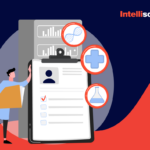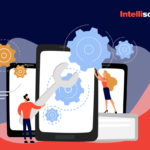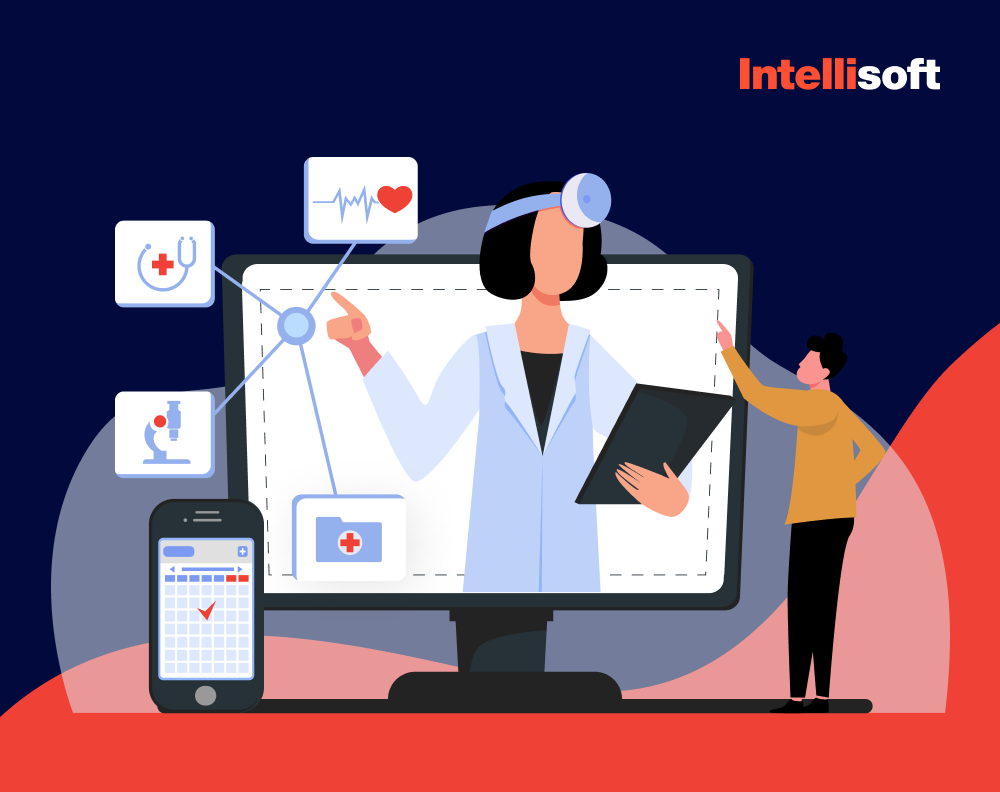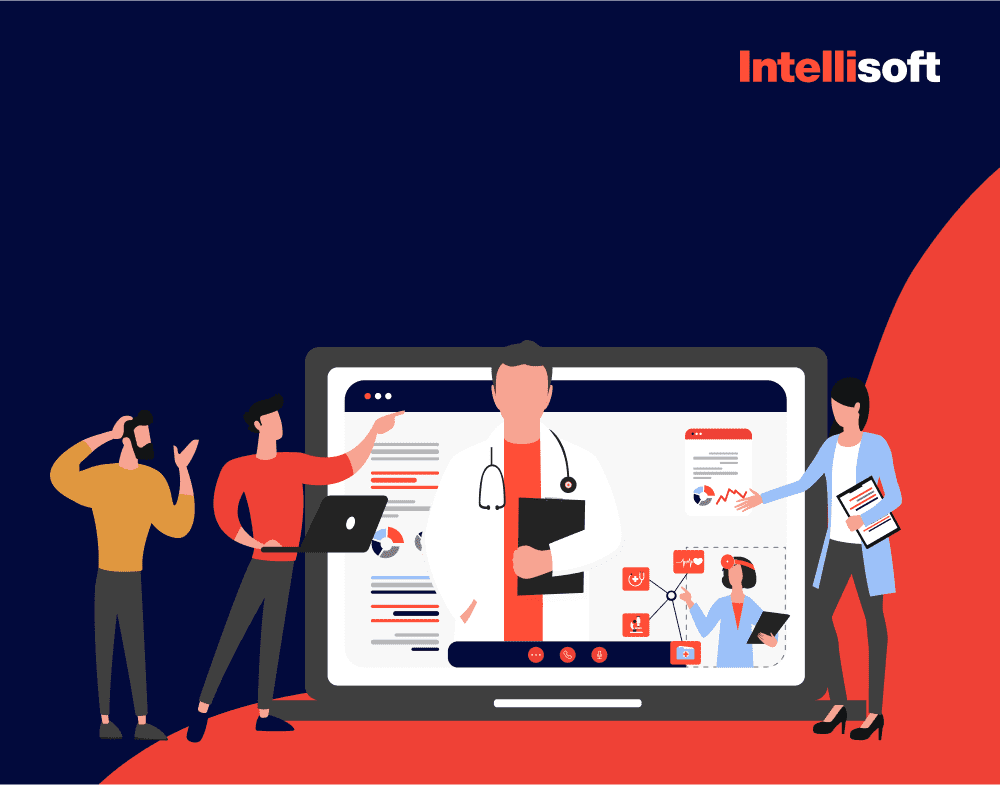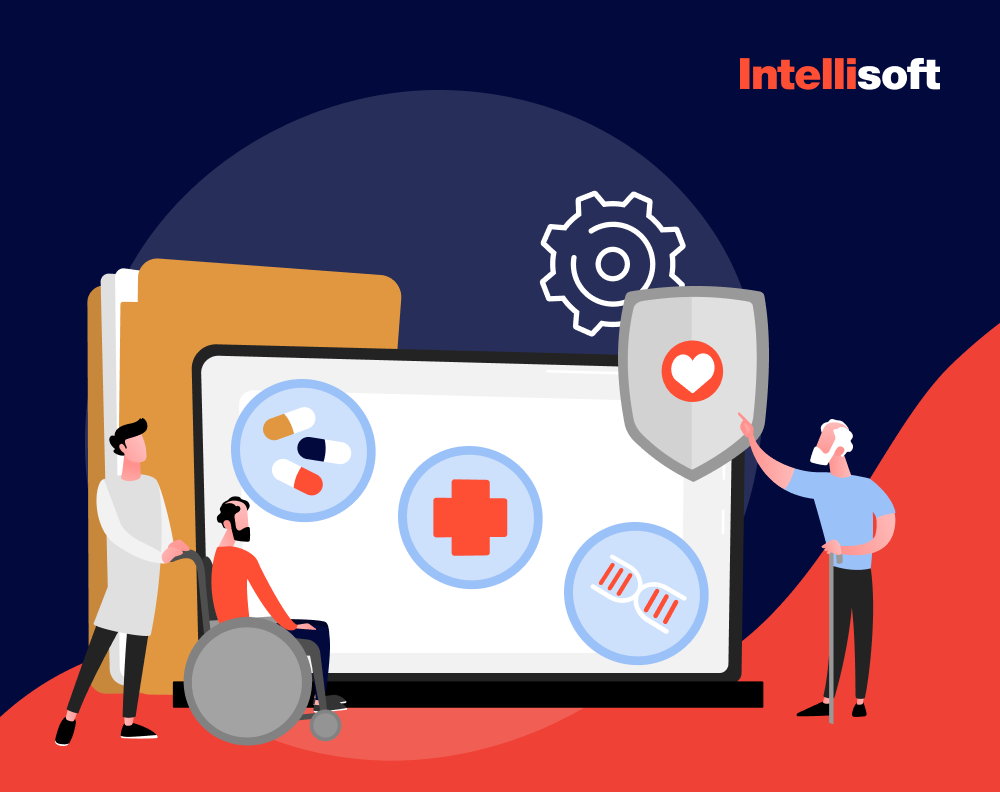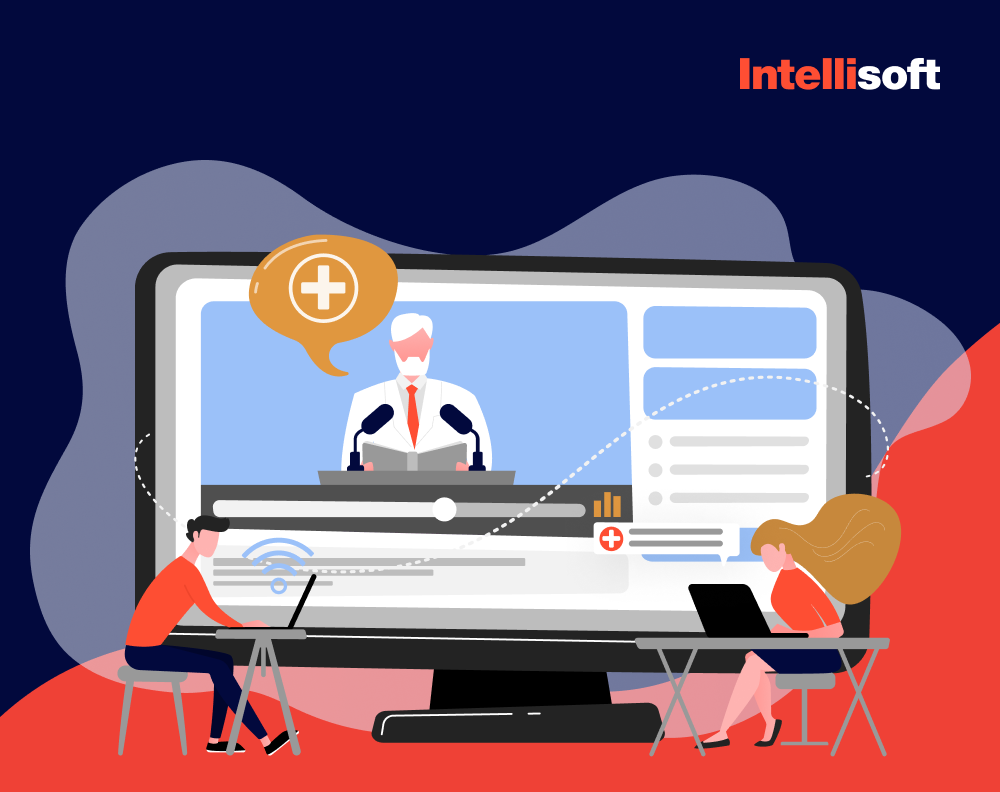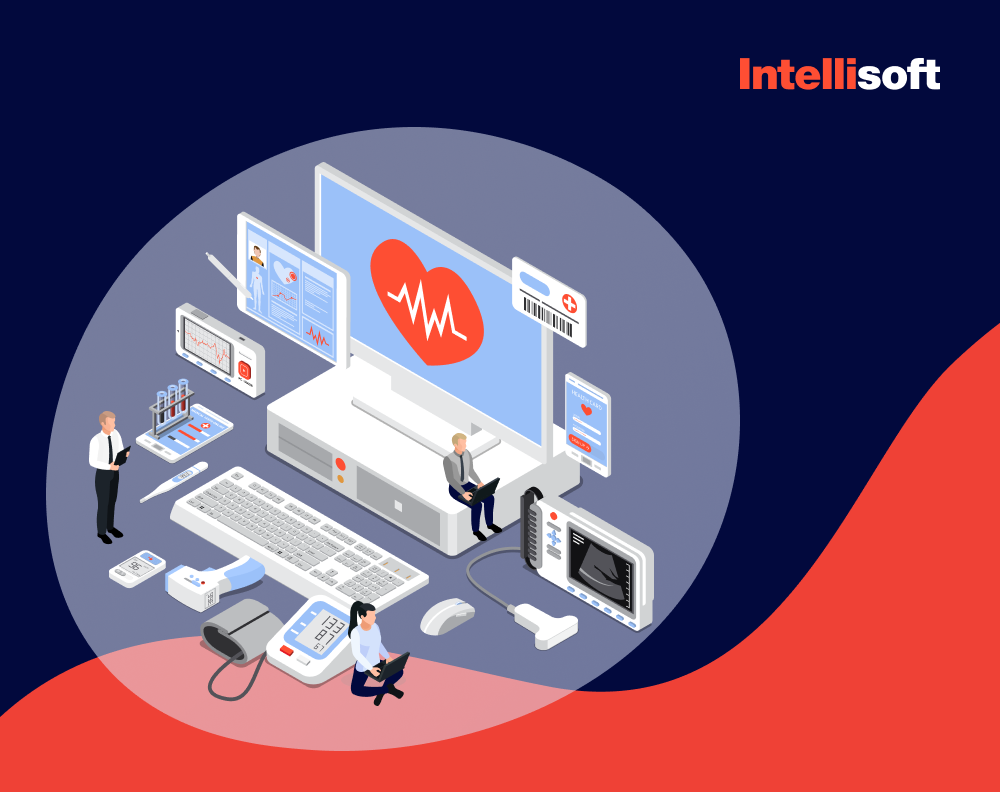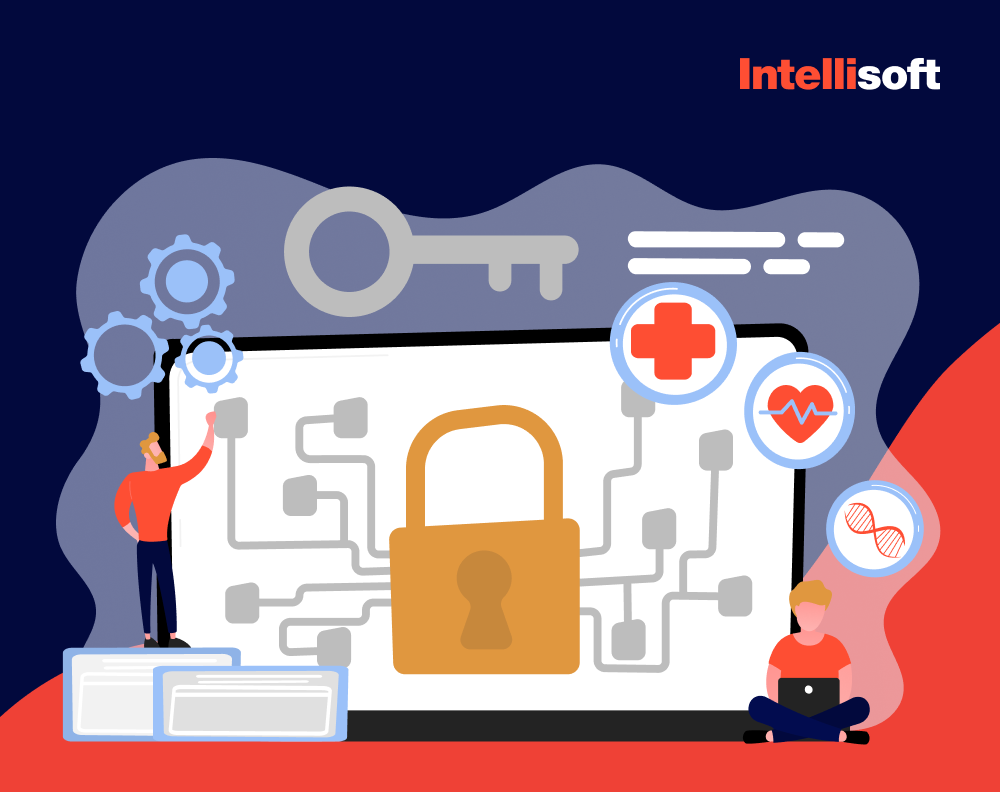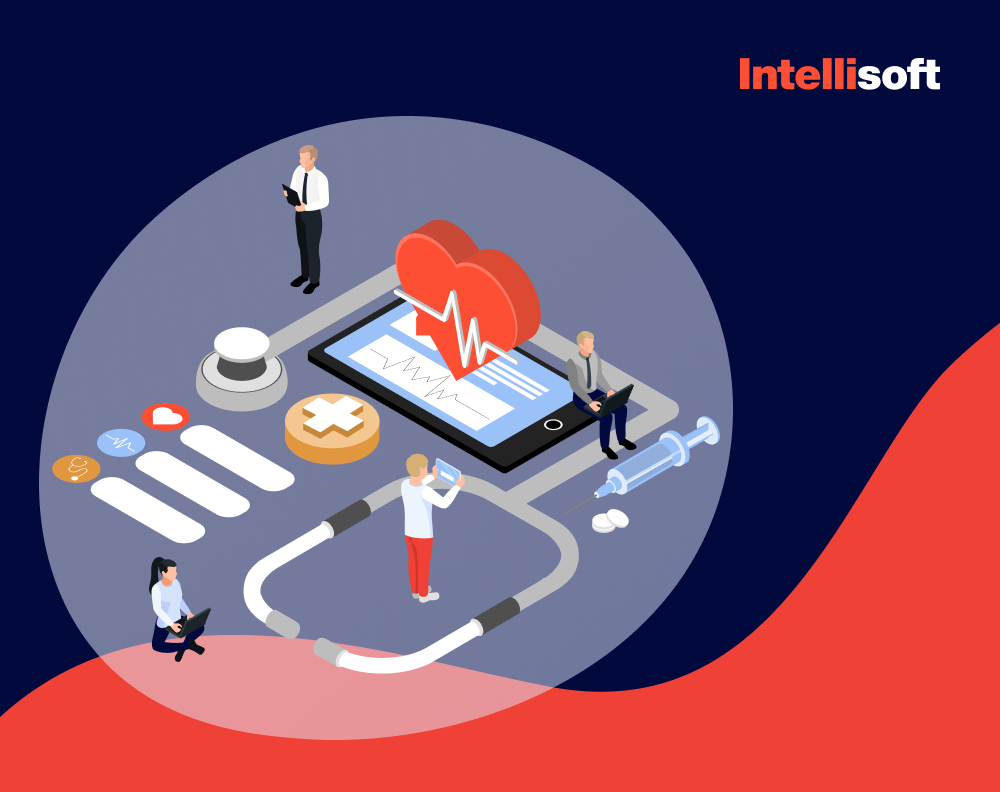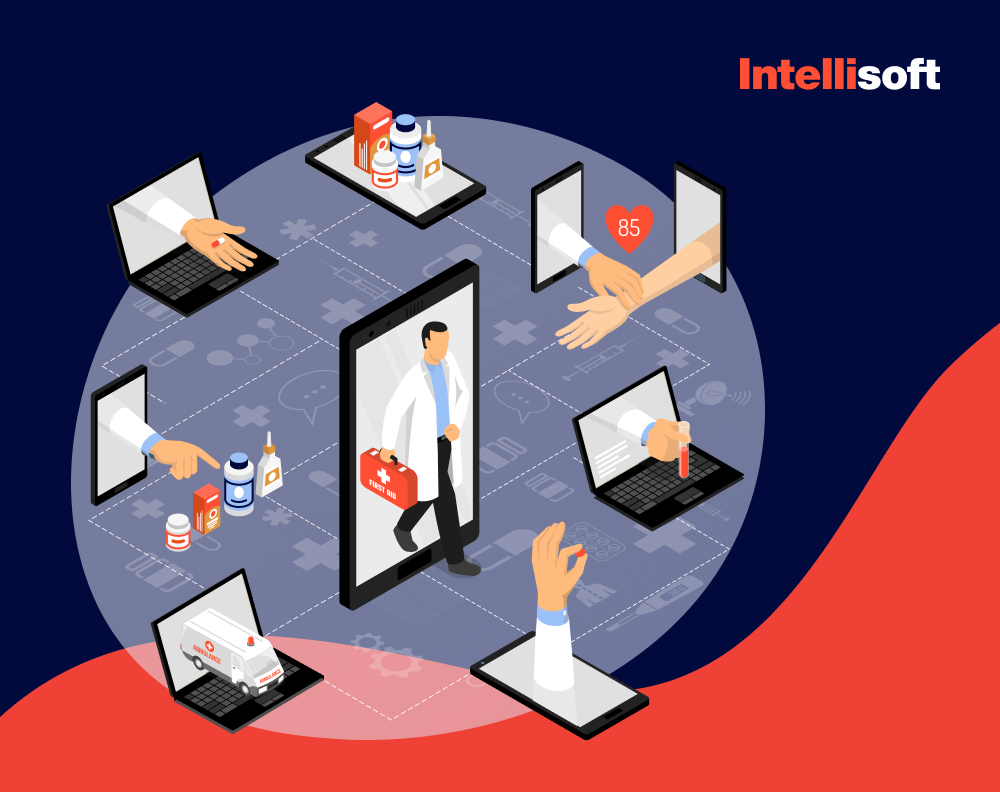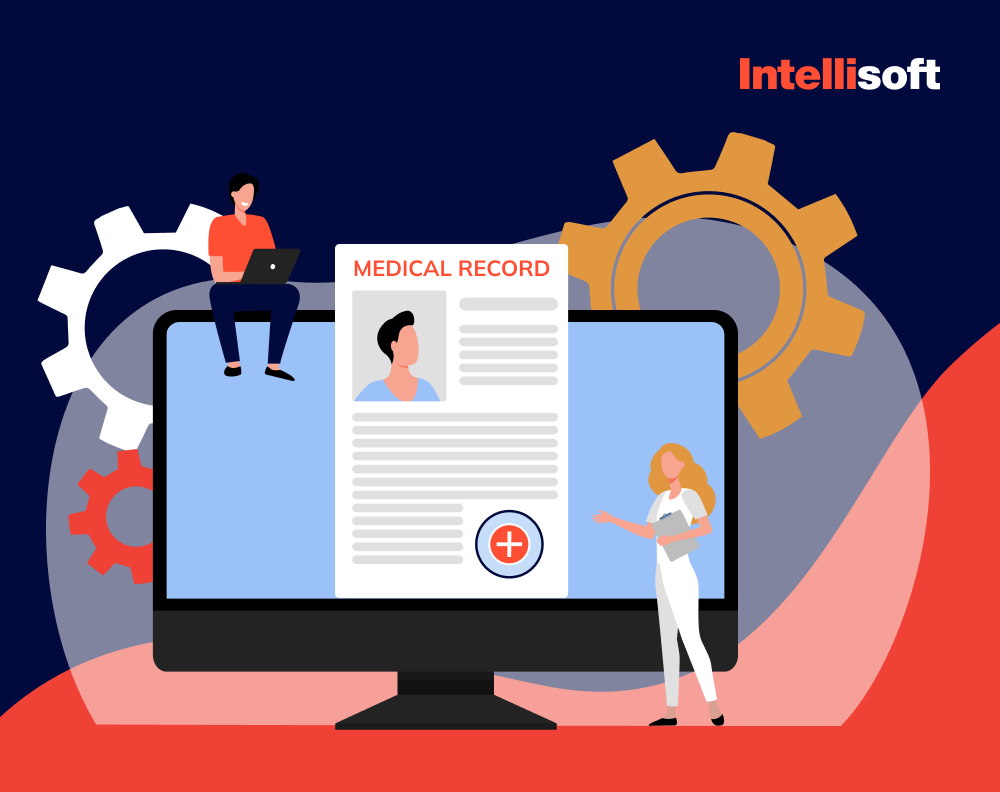Chronic diseases are prevalent and affect the lives of millions of people in the world. In the US alone, 6 out of 10 adults have a chronic disease, which is a leading cause of death and disability in the country. The most widespread chronic diseases include heart disease, hypertension, and arthritis, but the list of diseases is incredibly long.
With more and more people suffering from chronic diseases, the question arises; how do healthcare professionals and medical organizations manage these conditions and help people? To improve the effectiveness of their chronic disease management approaches, they need to invest in chronic care management software solutions tailored to their specific needs and cases.
The global CDM software market is expected to grow at a CAGR of 7.5% from 2023 to 2030. With the growing trend of developing chronic care management solutions, it’s time to join the game and enhance your patient care with a custom solution.
If you have been looking for a tech partner to help you develop chronic management software, IntelliSoft is here to offer our helping hand. With more than 13 years of experience in the healthcare industry, our team knows everything about the needs and requirements of the industry. Let’s explore the world of chronic care management solutions and discuss why a customized solution will take your business to a new level.
Table of Contents
What is a Chronic Disease Management System?
Chronic disease management software (CDMS) is a tech system created to maintain patient self-care routines for people with chronic diseases. Its main goal is to help prevent complications related to chronic conditions and improve people’s day-to-day lives.
CDMS are usually tailored to address the unique needs and challenges associated with heart disease, diabetes, hypertension, and asthma. At its core, a CDMS facilitates the systematic organization and tracking of patient health data, treatment plans, medications, appointments, and communications within a healthcare setting. By centralizing these critical aspects of chronic disease management, CDMS helps healthcare professionals streamline workflows, improve patient outcomes, and enhance the overall quality of care.
How CDMS Works
A CDMS is a software solution that streamlines the management of chronic conditions within chronic care management software companies. Here’s how it works:
- Data collection from EHRs, patient-reported information, and diagnostic devices.
- Integration of data into a centralized database.
- Assessment of patients with chronic diseases by evaluating symptoms, risk factors, medical history, and lifestyle factors.
- Allows healthcare professionals to share tasks, track patient progress, and assign tasks in real-time.
- Chronic care management apps help healthcare practitioners develop individualized treatment plans, create medication management plans, lifestyle modifications, and referrals to specialists.
- CDMS enables healthcare providers to monitor patient progress through regular check-ins, lab tests, and remote monitoring devices.
The Importance of Chronic Disease Management Software
Chronic diseases represent a significant burden on healthcare systems worldwide, accounting for a substantial portion of healthcare spending and contributing to millions of premature deaths each year. As the prevalence of chronic conditions continues to rise, healthcare organizations are increasingly turning to technology solutions such as chronic disease management software to manage these complex health issues better.
According to the Centers for Disease Control and Prevention (CDC), chronic diseases account for approximately 90% of the nation’s $3.8 trillion in annual healthcare spending in the United States alone. Thus, CDMS helps lower costs by improving preventive care, reducing hospital readmissions, and optimizing resource utilization.
Moreover, studies have shown that patients with well-managed chronic conditions experience fewer complications, better symptom control, and enhanced overall health status. Chronic disease management tools enable healthcare providers to deliver more personalized and proactive care, facilitating early intervention, adherence to treatment plans, and continuous monitoring of patient progress.
The Journal of Medical Internet Research has also demonstrated that patients who actively participated in their care using digital health tools experienced better health outcomes and higher satisfaction levels.
Advantages of Chronic Disease Management Software
Before you invest in the development of a chronic disease management app, you should be aware of its main advantages and understand how it will influence your business. Let’s dive into the main benefits of a custom CDMS for your healthcare organization.
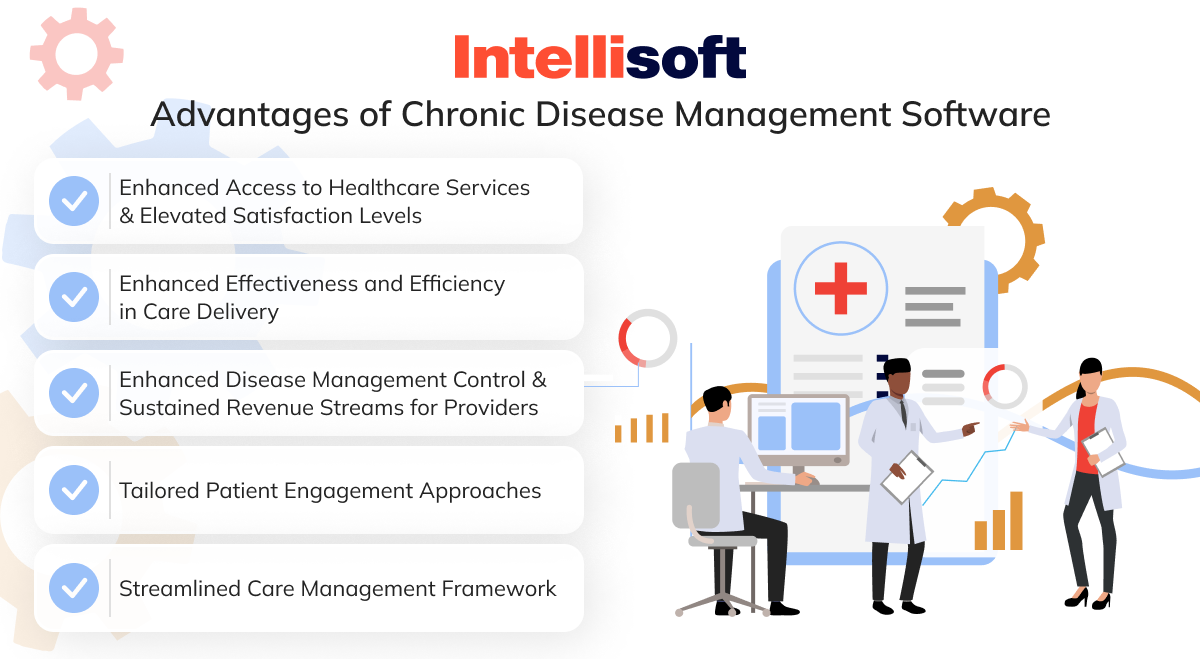
Enhanced Access to Healthcare Services & Elevated Satisfaction Levels
People who use CDMS can easily access healthcare support services to navigate their diseases better and receive help promptly, whether simply asking a question or receiving treatment. When healthcare organizations can effectively communicate with patients and engage with them via a software solution, it leads to higher satisfaction rates, better patient care, and, consequently, higher business revenue.
Enhanced Effectiveness and Efficiency in Care Delivery
With software for chronic care management, all patient and healthcare provider communication is remote. A patient doesn’t have to schedule an appointment and commute to the facility; everything can be done online, from any point on the map, and incredibly fast. Smartphones, emails, and EHRs make communication smooth, quick, and efficient, especially for those people who can’t visit the healthcare facility in person for any reason.
Enhanced Disease Management Control & Sustained Revenue Streams for Providers
As mentioned earlier, patients with access to a chronic care management platform usually control their chronic conditions more efficiently. They can prevent complications, receive better treatment, and control their health. This is achieved thanks to the ability to connect with healthcare practitioners easily and store all health information in one place.
Chronic care management software companies can reduce the workload online, manage patient documentation more effectively, and optimize operations in the healthcare facility.
Tailored Patient Engagement Approaches
CDMS enables chronic care management software companies to personalize patient engagement strategies based on their needs and preferences. This can be achieved through remote monitoring, patient portals, and telehealth consultations. As a result, healthcare practitioners can deliver targeted educational resources, treatment adherence support, and appointment reminders.
Streamlined Care Management Framework
EHRs, appointment scheduling, and secure messaging systems are all incredibly useful for streamlining the care management process. These features help centralize patient data, automate administrative tasks, and facilitate communication among healthcare providers. By optimizing workflow processes and reducing administrative burdens, healthcare organizations can enhance productivity, allocate resources more effectively, and deliver high-quality care to patients with chronic conditions.
Types of Chronic Disease Management Apps
There are several types of CDMS, including:
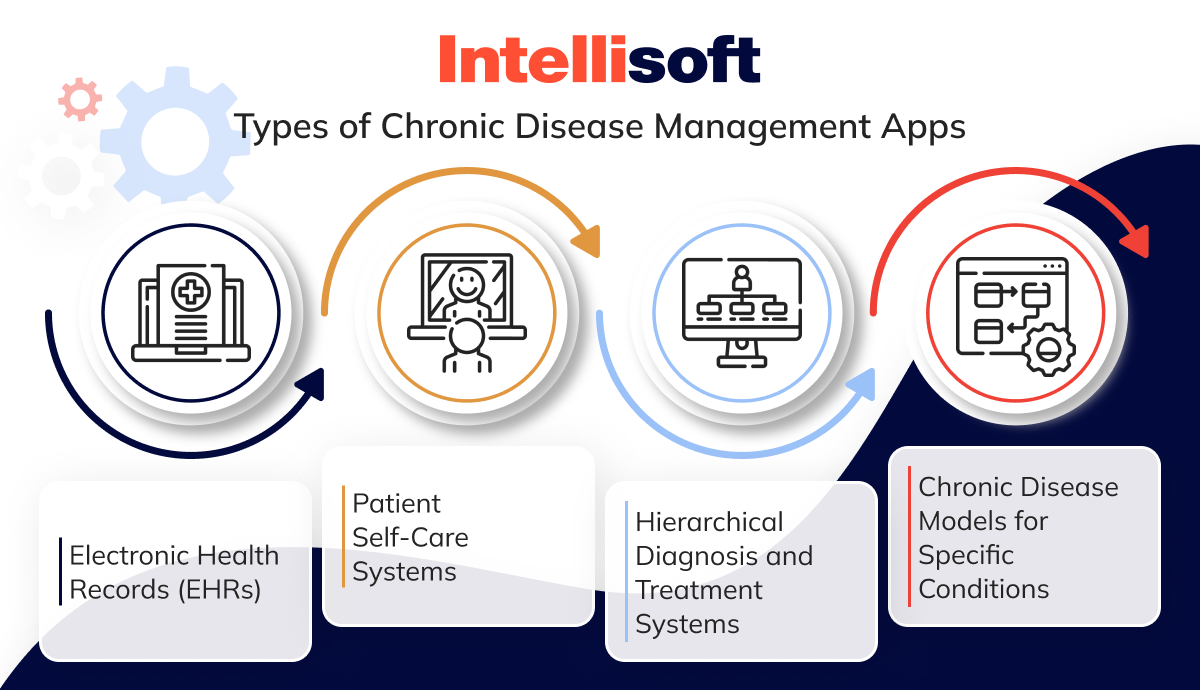
Electronic Health Records (EHRs)
Integrated EHRs are the foundational tools in chronic disease management, providing healthcare practitioners with comprehensive patient health records in real time. Unlike traditional paper-based records, EHRs collect digitized patient information – medical history, diagnoses, lab results, medications, and treatment plans.
Integrated EHRs often feature decision-support functionalities and chronic care management tools, allowing healthcare professionals to monitor patient health, track disease progression, and make informed clinical decisions.
Patient Self-Care Systems
Patient self-care systems empower individuals to actively participate in managing their chronic conditions, promoting self-monitoring, self-management, and adherence to treatment plans. These systems use mobile apps, online portals, and wearable devices to provide patients with educational resources, medication reminders, symptom-tracking tools, and lifestyle management support.
Hierarchical Diagnosis and Treatment Systems
These systems focus on improving the management of chronic diseases through structured approaches to diagnosis, treatment, and population health management. Hierarchical diagnosis and treatment systems use algorithms, protocols, and decision-support tools to help healthcare professionals identify, assess, and manage chronic diseases.
Moreover, these systems standardize care delivery and promote evidence-based practices, helping reduce variation in clinical decision-making, optimize resource allocation, and improve patient outcomes.
Chronic Disease Models for Specific Conditions
Chronic disease models tailored to specific conditions such as Diabetes, COPD, and CVD provide specialized approaches to managing complex health issues. These models, such as the Chronic Care Model (CCM), Improving Chronic Illness Care (ICIC), and Innovative Care for Chronic Conditions (ICCC), offer frameworks for organizing and delivering care to individuals with particular chronic diseases.
Related Readings:
- The Internet of Things (IoT) in Health Care
- What Is Interoperability in Healthcare and Why Is It Crucial?
- How Artificial Intelligence Innovates the Healthcare Industry
- A Step-by-Step Guide to Developing HIPAA-compliant Medical Apps
Basic Components of Chronic Care Software
When you want to develop your own CDM solution, it is worth knowing what features to include in such software. Below is a list of features that will work best for CDM app:
- Patient Registries. They organize and centralize patient info and allow healthcare providers to manage and track the health status of people with chronic conditions.
- Care Coordination Tools. These features promote seamless communication and collaboration between practitioners and team members, letting them coordinate care plans, share updates, and address patient needs faster and more effectively.
- Clinical Decision Support. When embedded within the software, these systems offer evidence-based guidelines, recommendations, and protocols to help healthcare professionals make more informed decisions.
- Patient Engagement. Interactive tools and resources within the software encourage patients to actively participate in their own care actively, fostering greater adherence to treatment plans, lifestyle modifications, and self-management strategies.
- Data Analytics. Healthcare organizations utilize data analytics capabilities to analyze patient data, predict outcomes, identify trends, and optimize care delivery strategies for better patient outcomes.
Integration with EHRs. Seamless integration with electronic health records ensures the smooth flow of patient information between different healthcare systems, promoting continuity of care and reducing duplication of efforts. - Customizable Care Plans. Personalized care plans are tailored to each patient’s needs and health goals, ensuring that the treatment strategies are patient-centered.
- Patient Data Management. These features ensure secure storage, accessibility, and integrity of patient data, safeguarding health information and facilitating compliance with privacy regulations.
- Telehealth and RPM Solutions. These solutions enable virtual consultations, help healthcare practitioners monitor patients’ health in real-time, and provide real-time communication opportunities. This is especially important in remote or underserved areas.
- Billing and Payment Integration. Integration with billing and payment systems streamlines financial transactions, simplifies reimbursement processes, and ensures accurate documentation of healthcare services rendered.
- Configurable Assessment and Risk Triggers. These features help identify high-risk patients, manage chronic conditions to prevent complications, and prioritize interventions based on patients’ health and risks.
- Medication Intake Schedule. Automated medication reminders and scheduling tools help patients adhere to their medication regimens, reducing medication errors and improving treatment adherence.
- Health Indicators Tracker. This option allows patients to check their symptoms and vitals daily, including pain levels, aches, temperature, blood pressure, and glucose levels. Healthcare practitioners then check this info and can react to changes.
- Nutrition Recommendations. Integrated nutrition guidance offers personalized dietary recommendations and meal plans tailored to each patient’s nutritional needs, helping to manage chronic conditions such as diabetes, hypertension, and obesity.
- Personalized Notifications. Notifications and alerts on patients’ devices help remind them about future appointments, medication, health screenings, and other important tasks, making it easier to control one’s health and adhere to the plan.
- General Instructions. Educational resources provide patients with information on managing their conditions, dealing with symptoms, and adopting a healthier lifestyle to improve their well-being.
- Motivation Components. Various motivational tools and interactive components encourage patients to engage in their care, set health goals, and use the app more often. It helps foster a sense of empowerment and motivation to help people make positive health changes.
Chronic Care Management Software Examples
With the number of chronic disease patients increasing year after year, healthcare providers have a choice; to invest in a custom CDMS or use one available in the market. Since your needs and requirements are unique, choosing a ready-made solution can be tough since you have to pay attention to the features, cost, and interoperability. Let’s review the top 5 chronic disease management companies and the software they offer.
Epic Systems (Epic EMR Software)
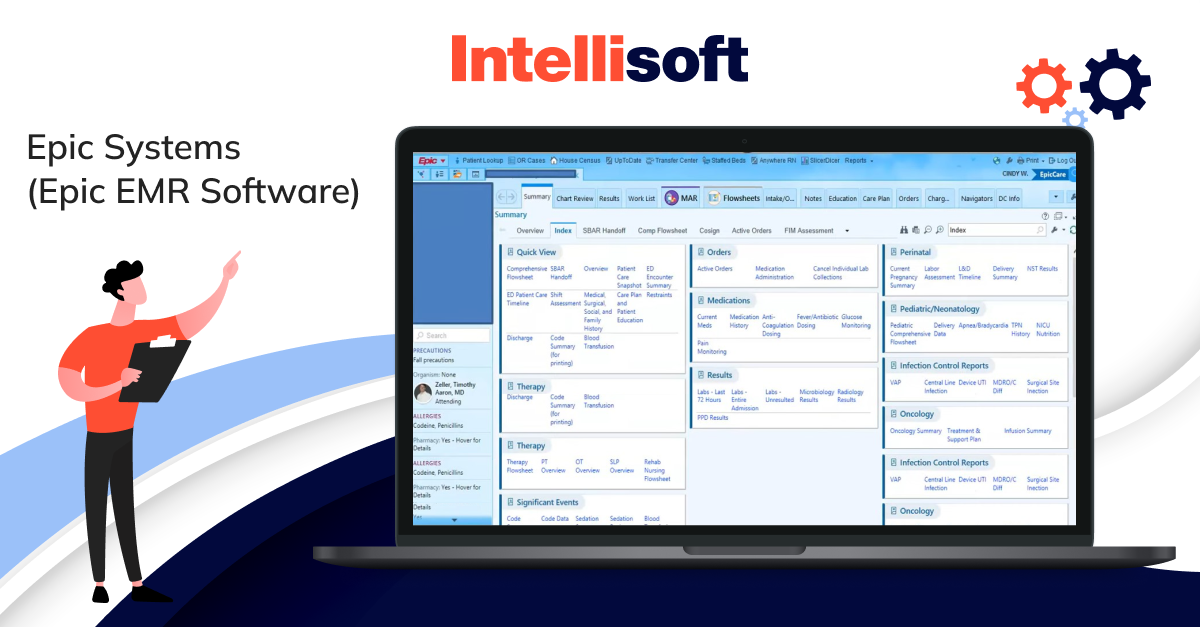
Meet the market leader in healthcare tech solutions – Epic Systems. The software solution created by this company consists of a suite of tools for medical charting, patient engagement decision support, practice management, and more. This system also has excellent interoperability when it comes to exchanging data with different EHR systems.
Worried about scalability? Epic Systems scales perfectly for large operations and has many analytics and reporting tools. With all the tools and features, Epic is a difficult system to learn and is considered an expensive one.
TimeDoc Health
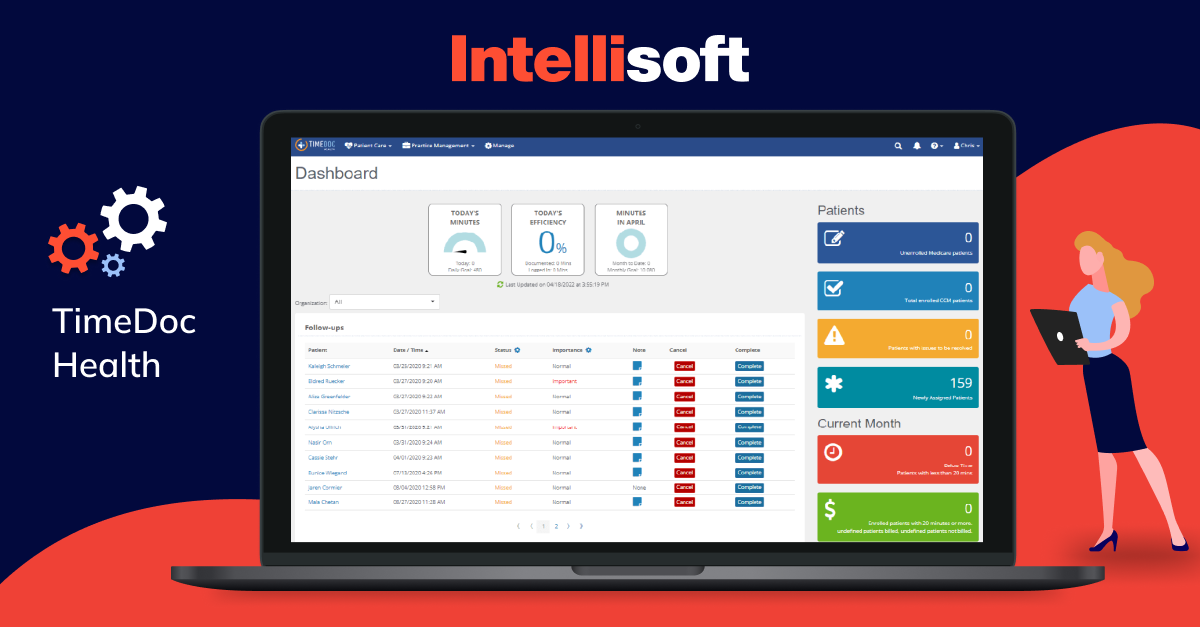
One more scalable solution for chronic care management is TimeDoc Health — it assists in care coordination, helps improve communication between healthcare providers, and allows for the automation of workflows.
TimeDoc also helps optimize documentation when preparing a medical audit, as it has pre-established plans and templates. This system also seamlessly integrates with EHR systems and other company solutions.
Chronic Care IQ
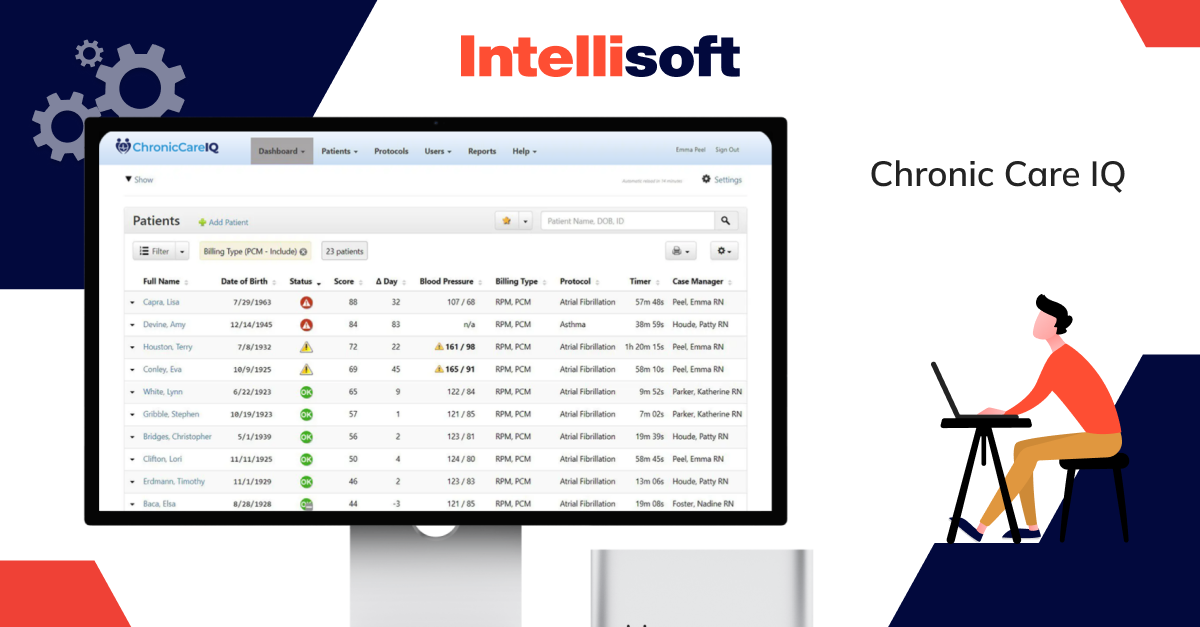
Chronic Care IQ stands out as a comprehensive cost management program offering an automated solution for chronic care management. By focusing exclusively on chronic care, this solution streamlines the management of patients with chronic conditions, enabling healthcare providers to connect directly with patients without the involvement of third parties.
The platform’s automation capabilities significantly reduce staff workload and increase operational efficiency, while risk stratification tools help identify and prioritize high-risk patients. Moreover, Chronic Care IQ assists providers in complying with Medicare’s Chronic Care Management (CCM) and Remote Patient Monitoring (RPM) programs, potentially generating additional revenue for practices.
WRS Health (Psychiatry-Cloud and OBGyn Cloud)
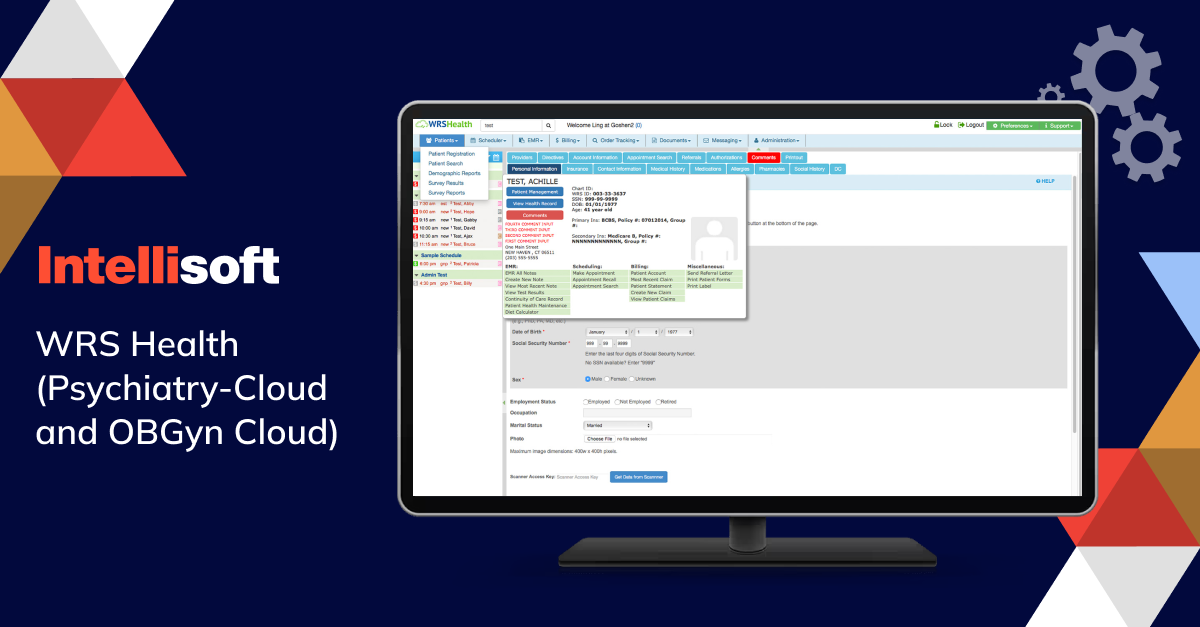
WRS Health offers specialty-specific cloud-based electronic health record (EHR) solutions, including Psychiatry-Cloud and OBGyn-Cloud, catering to the unique needs of mental health practitioners and obstetrics/gynecology practices, respectively. Psychiatry-Cloud provides features such as practice scheduling, billing and reporting, medication management, and quick charting tailored for mental health professionals.
On the other hand, OBGyn-Cloud offers appointment scheduling, automated calls, health maintenance alerts, and seamless integration with billing platforms, optimizing workflow efficiency for obstetrics/gynecology practices.
ThoroughCare
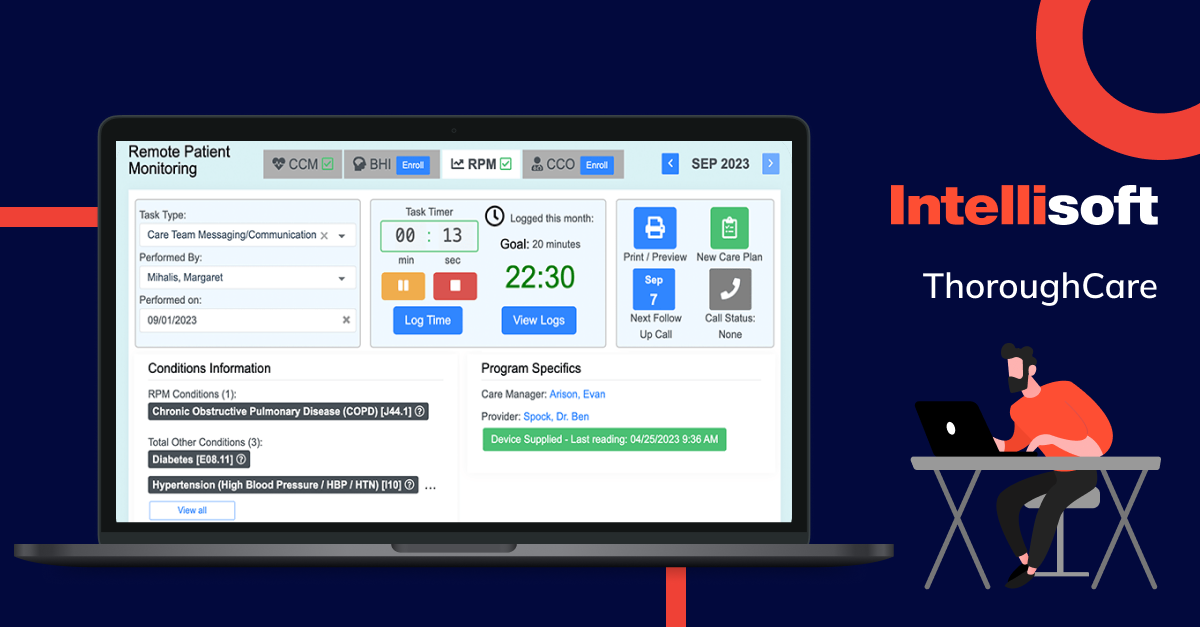
ThoroughCare provides a unified software solution for Chronic Care Management (CCM), consolidating all necessary tools within a single application. With over 600 healthcare providers currently using the platform, ThoroughCare offers intuitive, user-friendly design and customizable patient-centered care plans at an affordable price point.
The software automates medical billing and reporting processes, simplifying reimbursement for care management services. While lacking some advanced features found in more specialized systems, ThoroughCare offers a hassle-free user experience with the potential for smooth integration with Electronic Health Records (EHRs).
Conclusion
Chronic care management platform is a true revolution in modern healthcare, helping people with chronic diseases drastically improve their quality of life. With the help of CDMS, patients with heart disease, diabetes, hypertension, and other chronic conditions can manage their diseases efficiently, adhere to prescribed treatment plans, and improve their self-care.
Building it from scratch is one of the best ways to ensure that your CDMS meets your patients’ needs and serves your healthcare institution. A custom chronic care management system that includes the features you need will help improve communication between healthcare professionals and patients, improve patient care, and streamline operations.
Ready to embark on this journey and looking for chronic disease management services? IntelliSoft can help. Contact us to discuss all the details and help you transform your healthcare operations and patient care.
